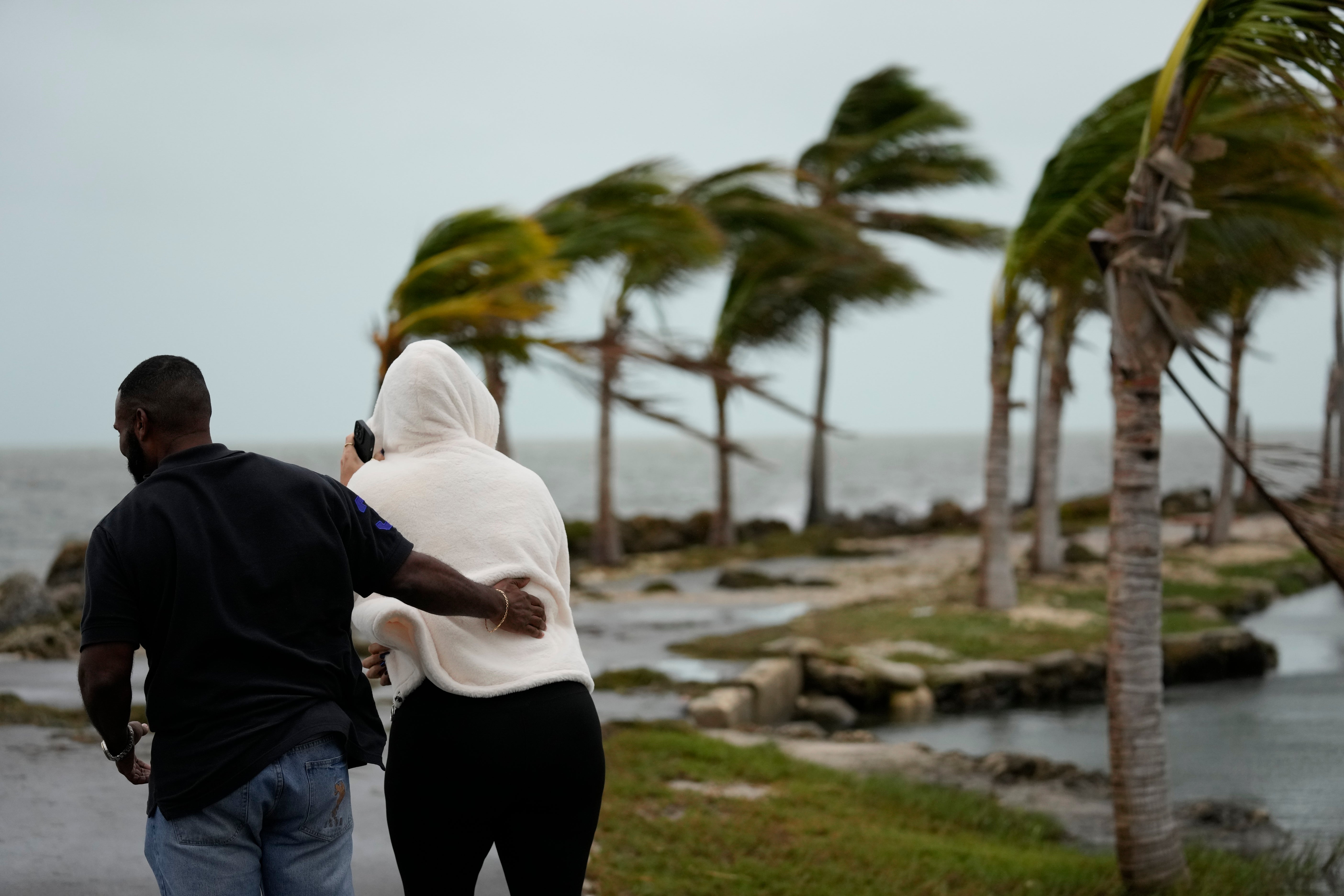Massive storm set to strike East Coast from Florida to New York affecting holiday travel
Communities in eastern coastal areas may experience dangerous conditions including high winds, heavy rain and flooding
Your support helps us to tell the story
From reproductive rights to climate change to Big Tech, The Independent is on the ground when the story is developing. Whether it's investigating the financials of Elon Musk's pro-Trump PAC or producing our latest documentary, 'The A Word', which shines a light on the American women fighting for reproductive rights, we know how important it is to parse out the facts from the messaging.
At such a critical moment in US history, we need reporters on the ground. Your donation allows us to keep sending journalists to speak to both sides of the story.
The Independent is trusted by Americans across the entire political spectrum. And unlike many other quality news outlets, we choose not to lock Americans out of our reporting and analysis with paywalls. We believe quality journalism should be available to everyone, paid for by those who can afford it.
Your support makes all the difference.Families travelling home for the holidays on the East Coast may find their plans disrupted by a major storm, which is set to rock the Florida peninsula over the weekend before making its way northwards.
Communities in eastern coastal areas may experience dangerous conditions including high winds, heavy rain and flooding spanning from Sunday to Monday, according to weather forecaster AccuWeather.
However it will not be the white Christmas many are hoping for, with little snow expected.
On Sunday, forecaster AccuWeather said that “intense rainfall” was expected, with the heaviest downpours likely to be seen in western Massachusetts, down through Connecticut into New York City.
According to AccuWeather, “torrential rain” is expected to hit the mid-Atlantic on Sunday into Monday, before heading north. Areas including Boston, New York, and Portland will see the worst of the poor conditions around 7am eastern time on Monday.
Commuters may experience difficult conditions that may hamper their travels during this time. In the southwest zone from Philadelphia to Washington DC, conditions will improve, but some roads may still be blocked by high water or debris, according to the forecaster.
Road travel is likely to be slowed and air travel may also be affected.
Between two and four inches of rain have already been seen along the eastern seaboard.
NOAA’s Storm Prediction Centre (SPC) previously said there was a possibility of “severe” storms in northeast South Carolina and eastern North Carolina on Saturday and Sunday.
Bernie Rayno, Chief On-Air Meteorologist for AccuWeather said the weather system would have the look and feel of a tropical storm.
"There is the likelihood of damage along the mid-Atlantic and New England coasts from this storm as it intensifies rapidly and produces a zone of strong winds that pushes water from the Atlantic toward the shoreline, while at the same time, heavy rain pours down," Mr Rayno said.

"Wind gusts will range between 40 and 60 mph and could approach 70 mph along the coast."
The SPC also listed the primary hazard for the storm as “damaging wind gusts”. Gusts of 74 mph or greater are considered hurricane-force winds. Beach erosion will occur, and some damage to dunes and other beach structures is possible.
On Sunday AccuWeather reported that gusts up to 50 mph were affecting regions including the New York City metro area. Highs of 85 mph were recorded, the forecaster said.
The system may also fall just short of being classified as a “bomb-cyclone”. The phenomenon occurs when central barometric pressure within a storm falls 0.71 of an inch of mercury in 24 hours or less.
The combination of heavy rain with a surge of water from the Atlantic will lead to moderate flooding in coastal beach communities with “back bay and tidal river flooding” from the Carolinas to Maine, according to AccuWeather.

Join our commenting forum
Join thought-provoking conversations, follow other Independent readers and see their replies
Comments